(does anyone know)
What is Digital Humanities?
Humanities Computing? Digital Humanities? Digital History? A field? A practice? A discipline? A waste of time?
Humanities Computing
Digital Humanities
But first, how did we get here?
Blending of math, humanities, and state power.*
*this is still true.
Both share a similar mission:
"using information technology to illuminate the human record, and bringing an understanding of the human record to bear on the development and use of information technology."
|
From, "The Digital Humanities and Humanities Computing: An Introduction" Susan Schreibman, Ray Siemens, and John Unsworth, http://digitalhumanities.org:3030/companion/view?docId=blackwell/9781405103213/9781405103213.xml&doc.view=print&chunk.id=ss1-1-3&toc.depth=1&toc.id=0. |
What is technology?
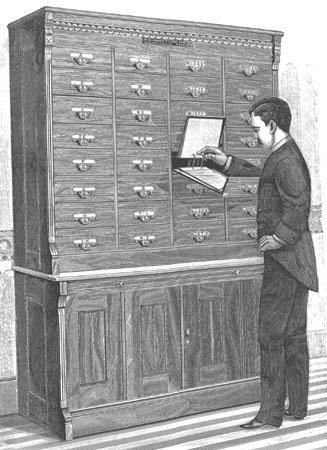
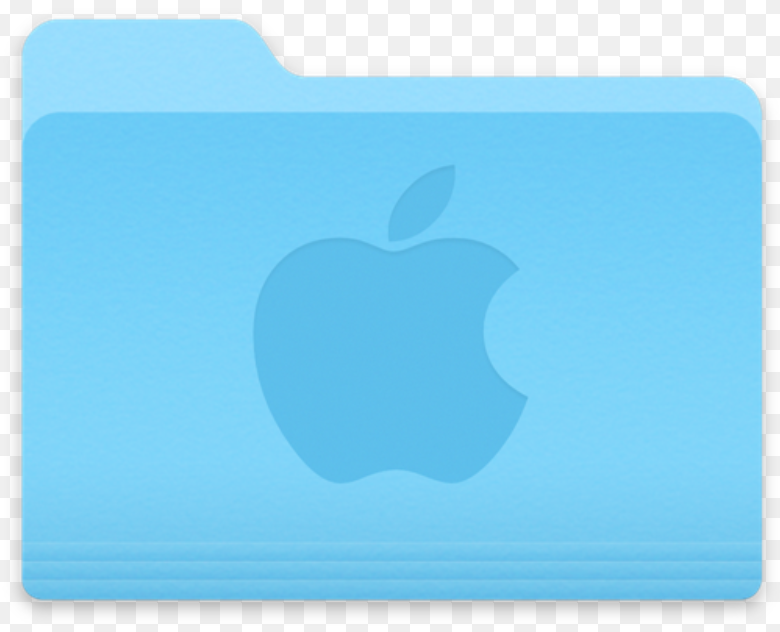

“There is no such thing as a new idea. It is impossible. We simply take a lot of old ideas and put them into a sort of mental kaleidoscope. We give them a turn and they make new and curious combinations. We keep on turning and making new combinations indefinitely; but they are the same old pieces of colored glass that have been in use through all the ages.” -- Mark Twain,
Codex --> Printed Book --> Ebook
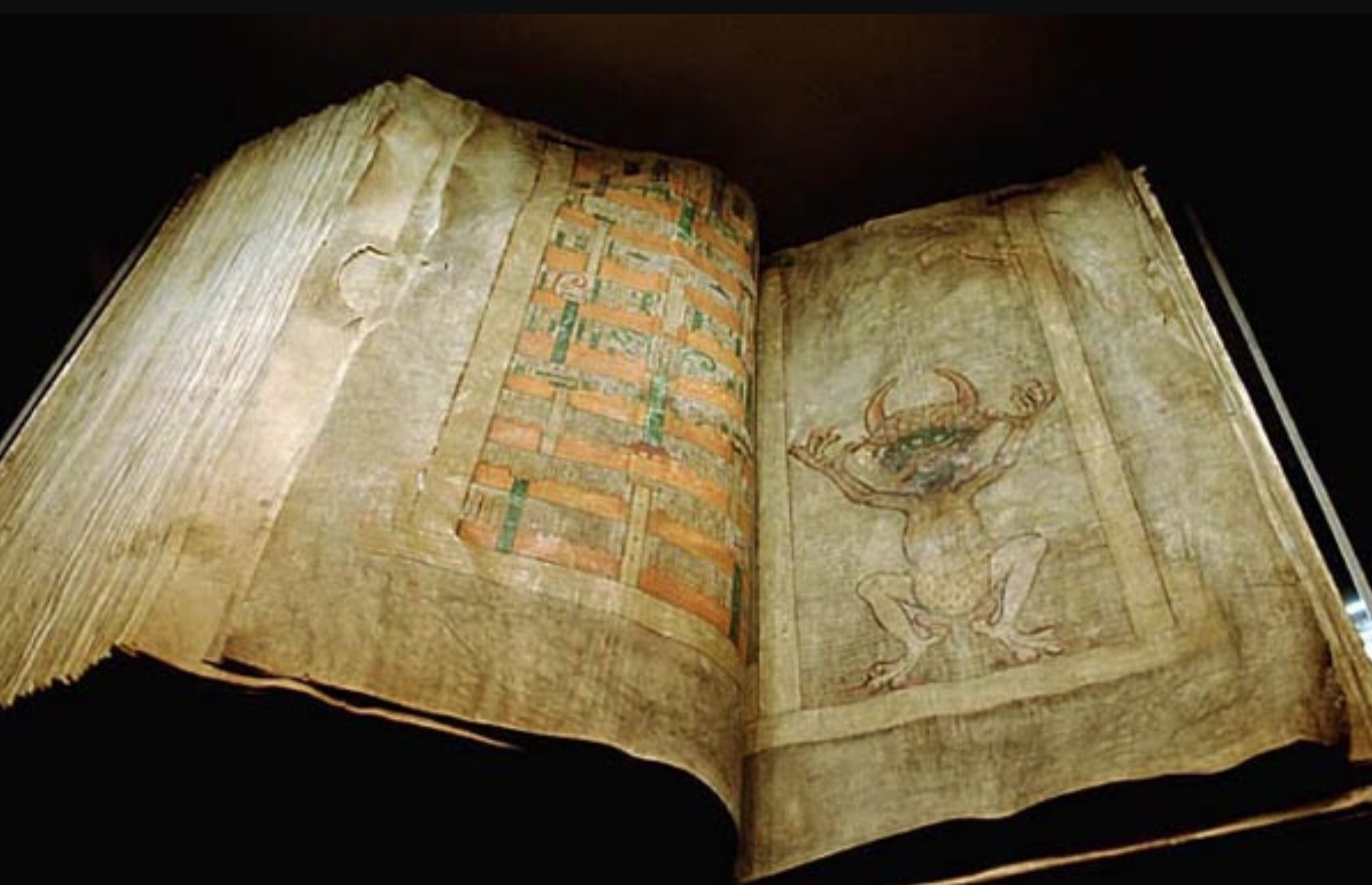
The Codex Gigas, 13th century, Bohemia.
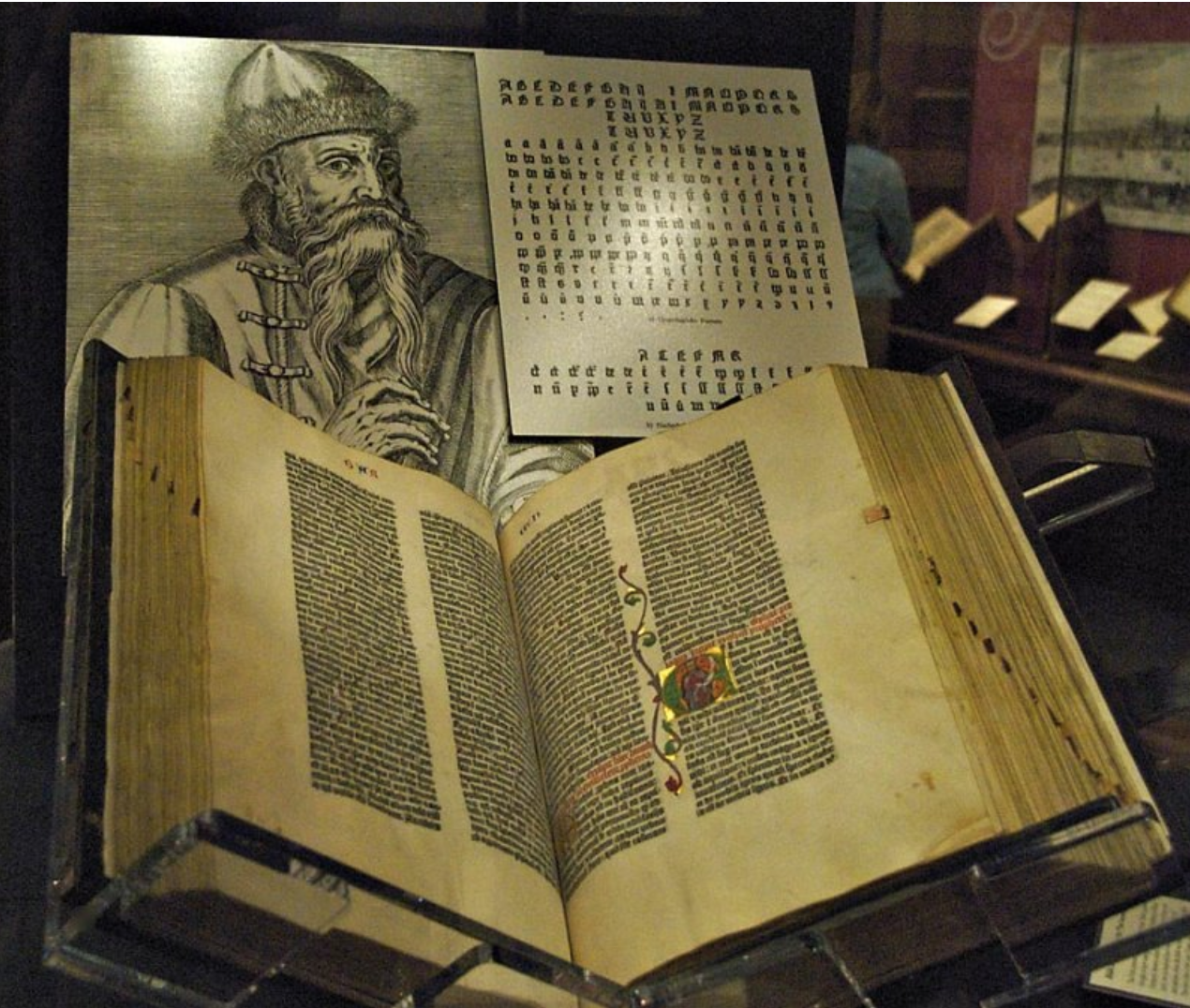
The Gutenberg Bible, 15th century, Germany.
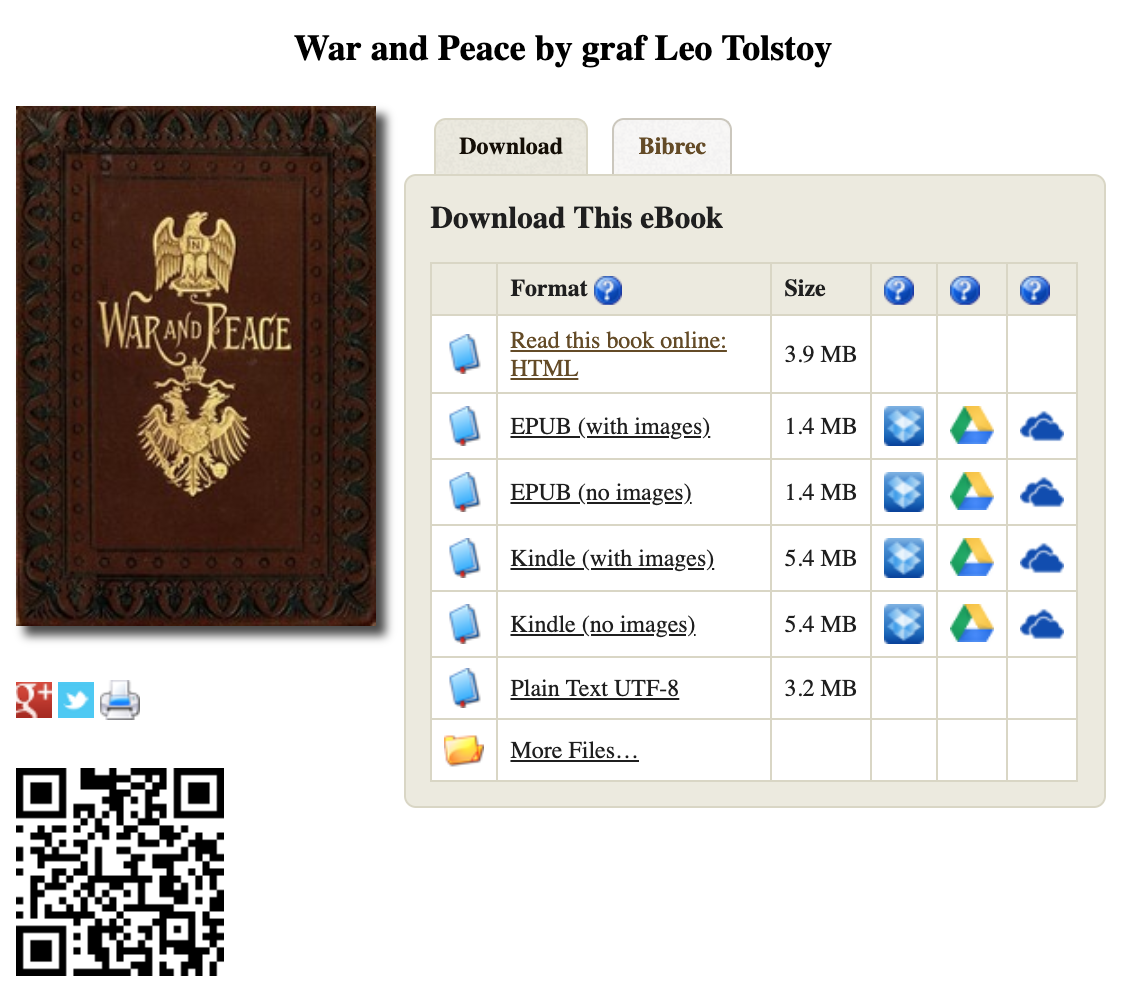
Project Gutenberg, 2019, World Wide Web.
Punch Cards
- IBM is rescued by the Social Security Act. The punch card becomes the official computing device for the New Deal.
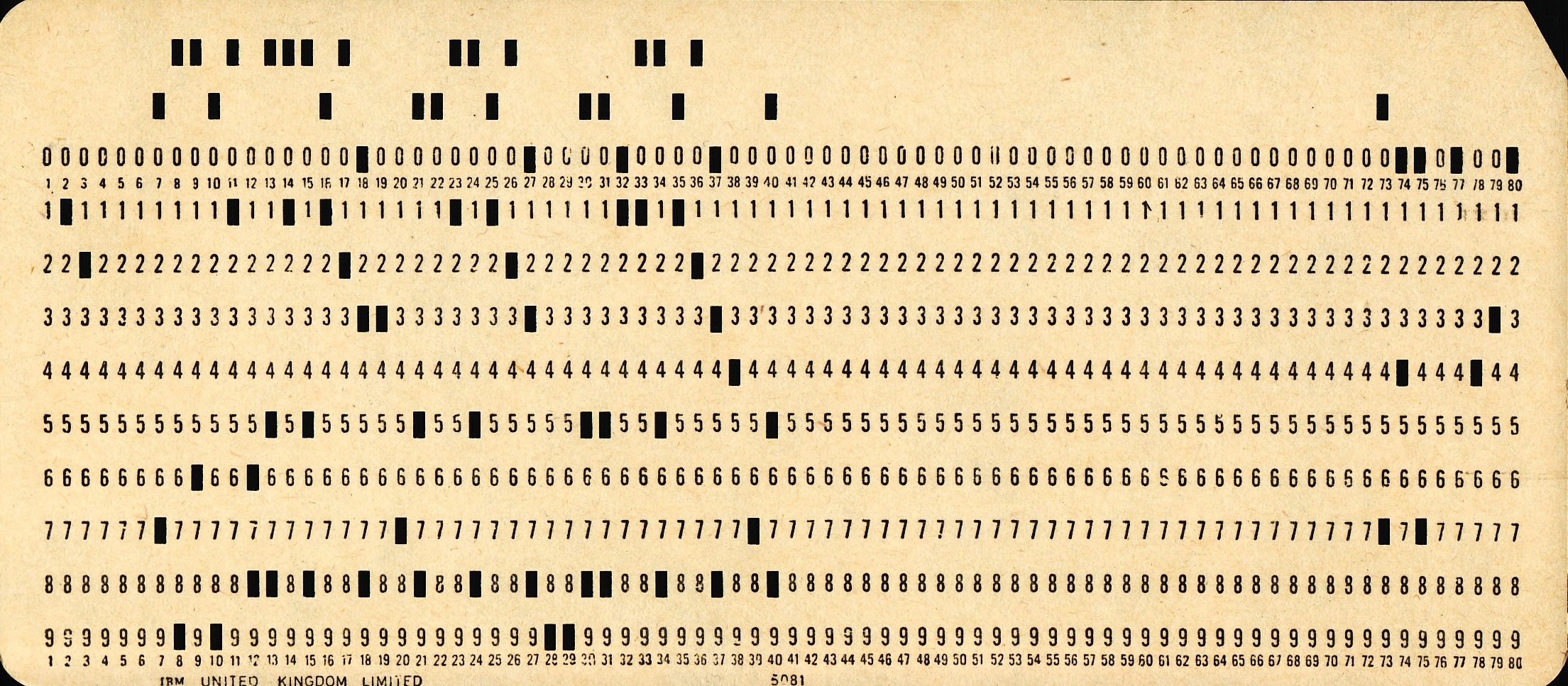


1940s:
-
Jorge Luis Borges (author) publishes "Garden of Forking Paths." Suggests ideas of a multiverse, or multiple pathways.
-
Vannevar Bush (scientist on Manhattan project) publishes "As We May Think." Hypothesizes the Memex, which would tie information together through free association.
- Jesuit priest Father Busa attempts to index the writings of St. Thomas Aquinas with the help of IBM computing. (completed 1970s)
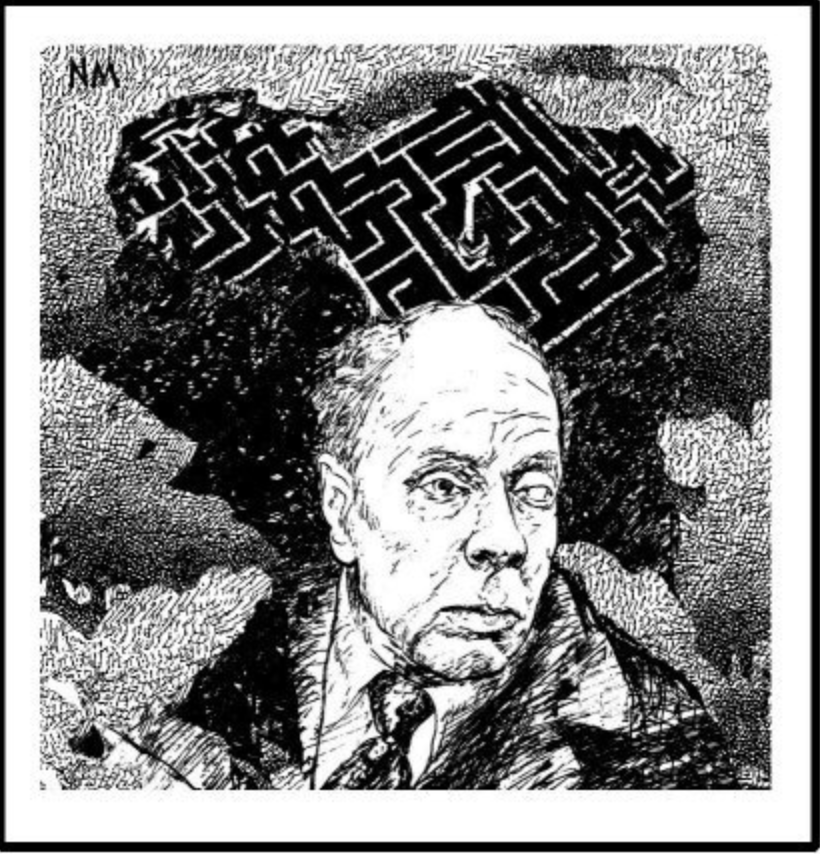
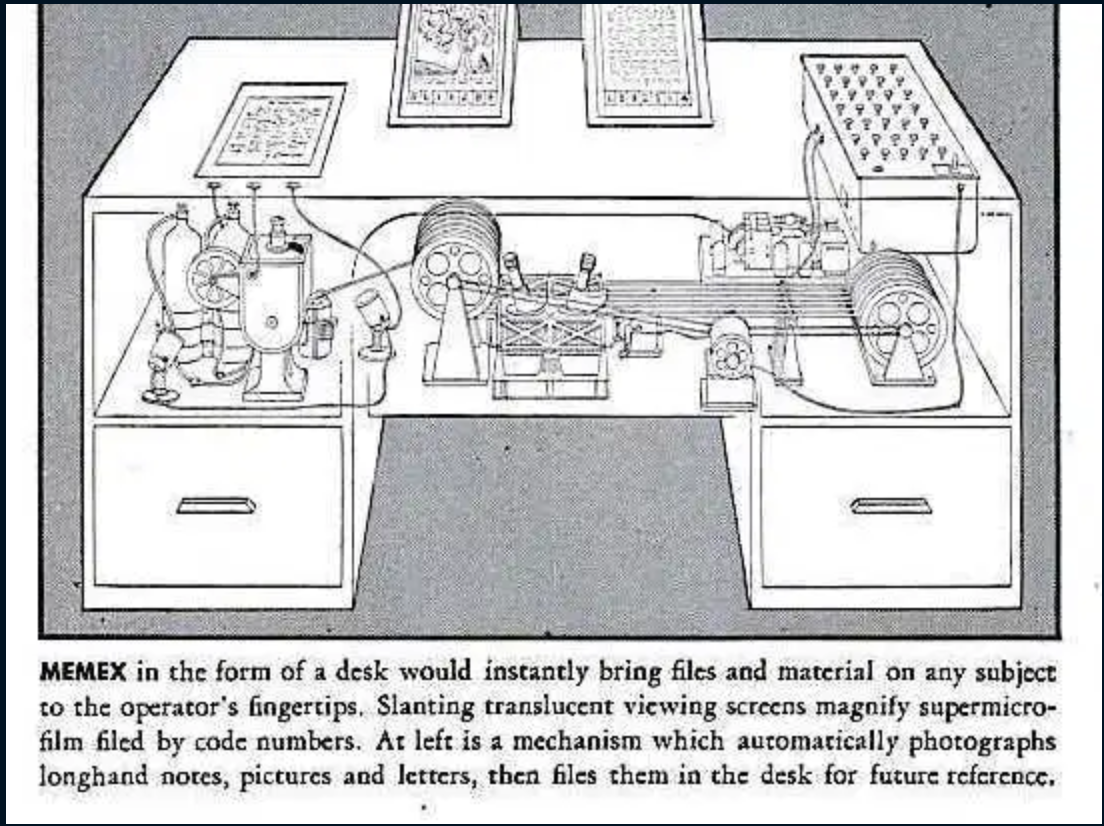
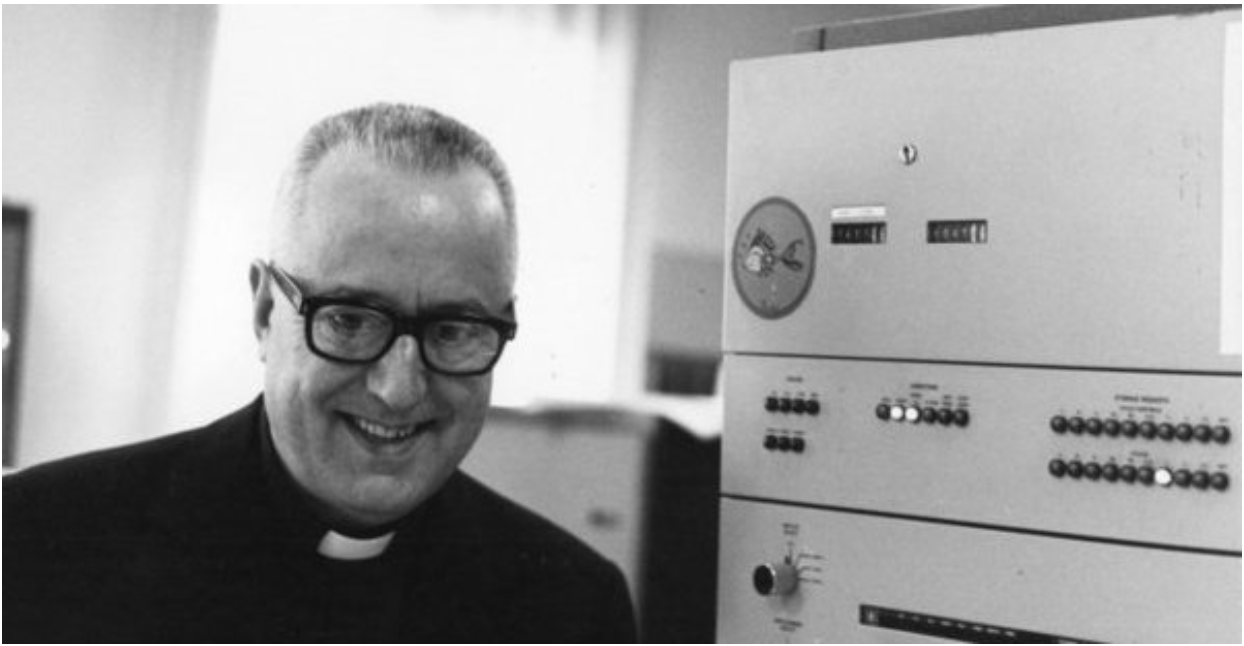
1950s-1960s
- Alan Turing cracks the Enigma code and designs the Turing Test.
- ELIZA one of the first AI programs to pass the Turing Test.
- Ted Nelson conceives of Project Xanadu and invents the term "hypertext."

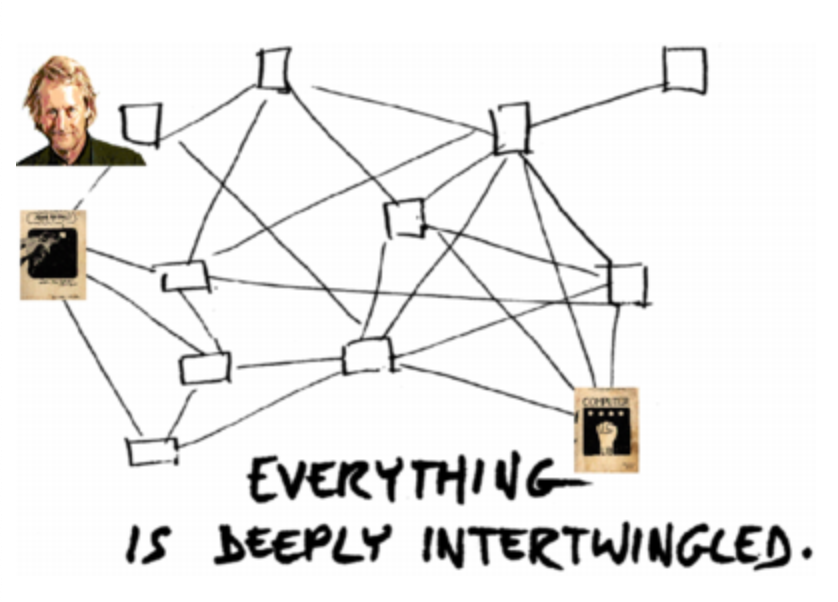
The Internet
1980s-1990s
- The graphical user interface replaces the command line by 1980s, leading to the personal computing revolution.
- Hypercard creates possibility for user-guided explorations of virtual worlds.
- World Wide Web and Electronic Mail gain popularity.
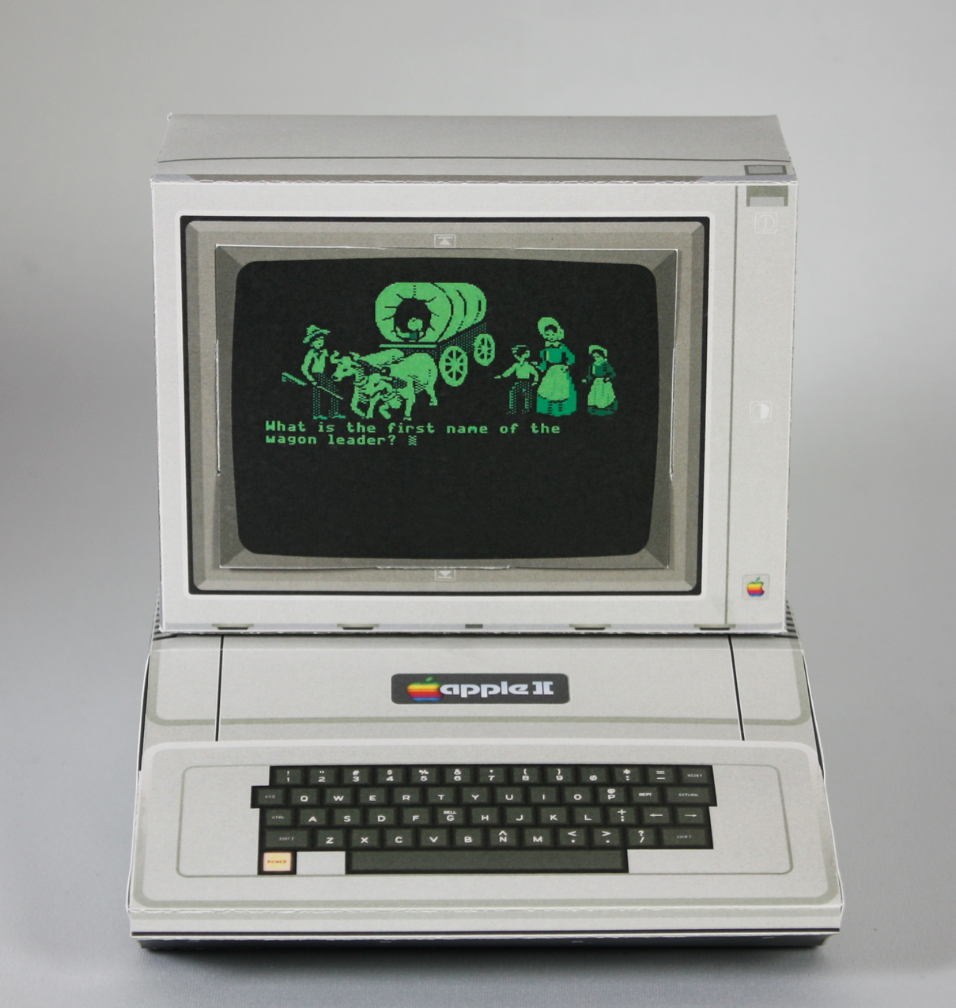
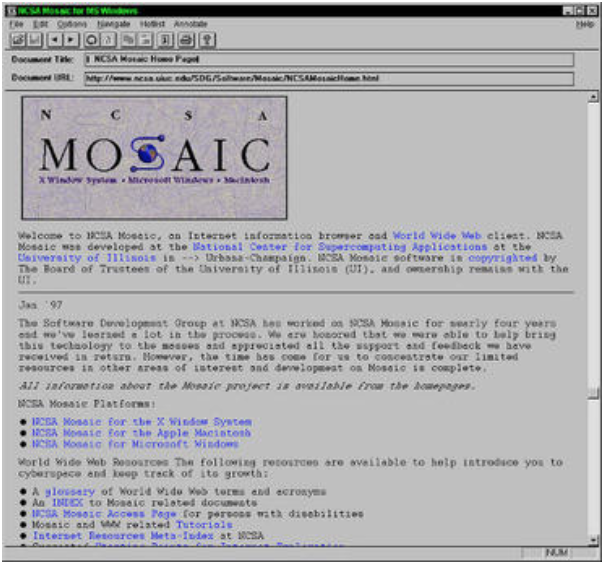
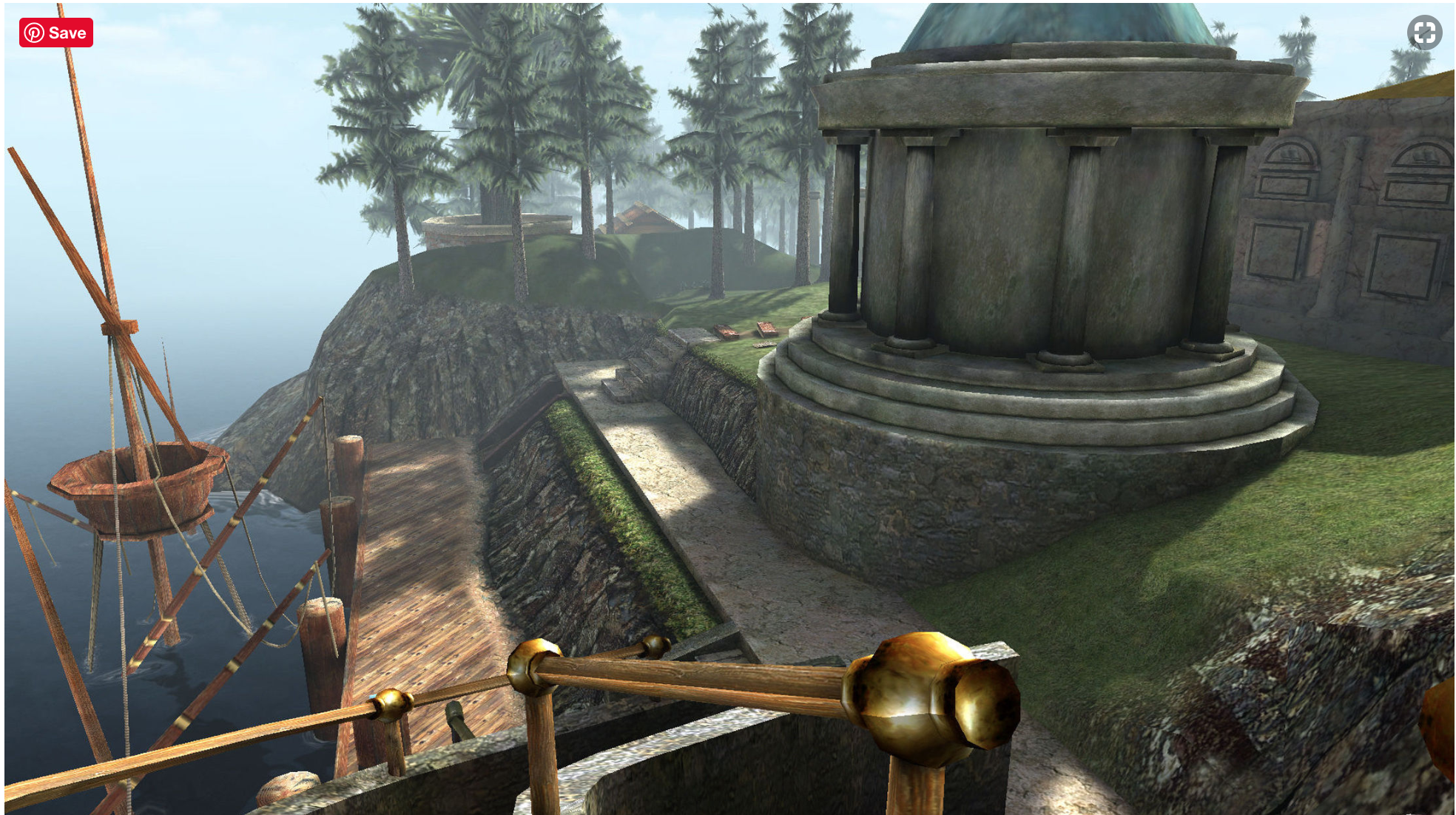
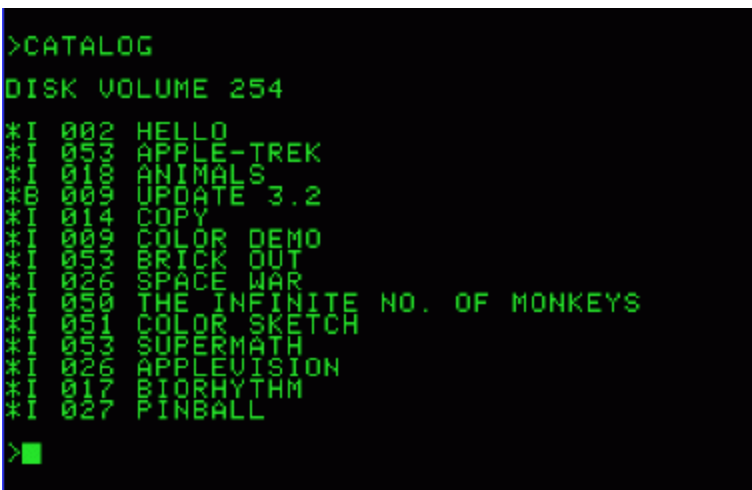
21st Century
- The Internet continues to expand (RIP Floppy Disk and CD-ROM; hello Cloud).
- Web 2.0: the web becomes participatory. Enter Myspace, Livejournal, Facebook and other social media websites.
- Content management systems (CMS) like Omeka and Wordpress are built for people to publish online.
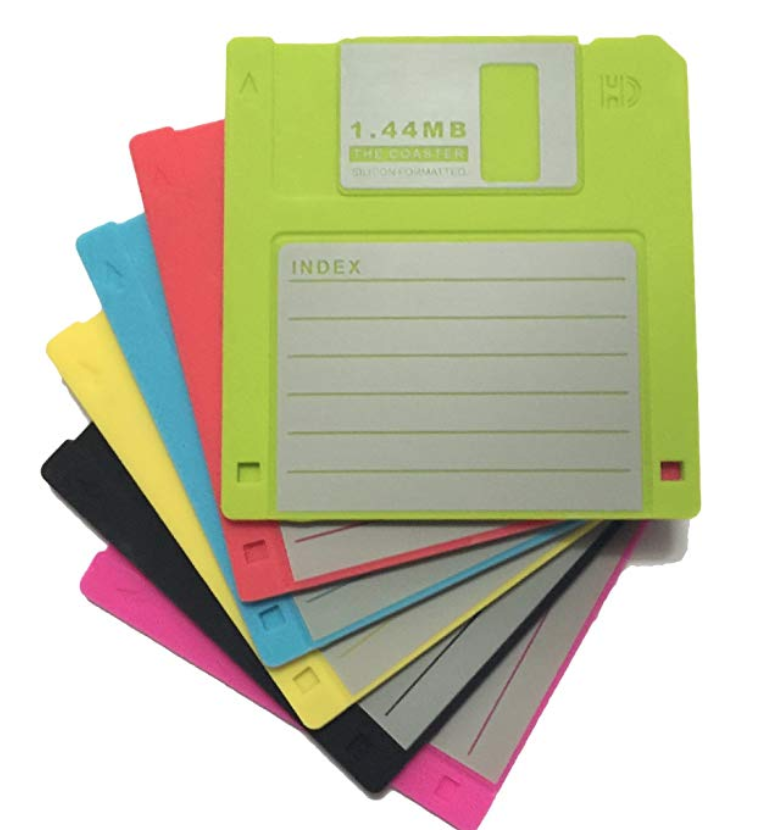
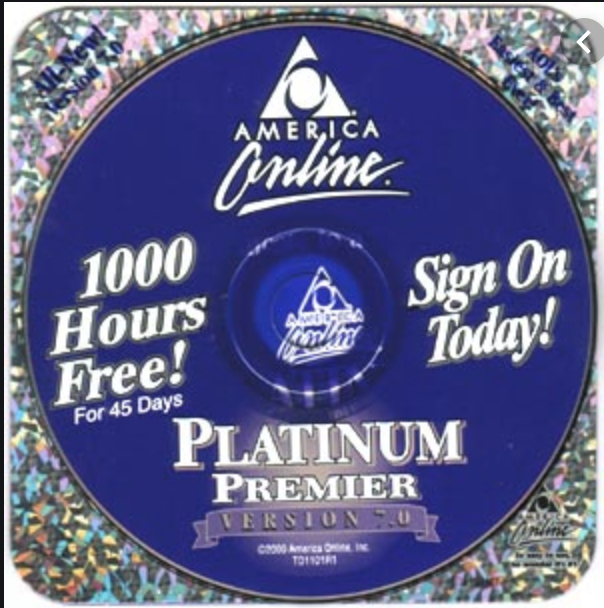
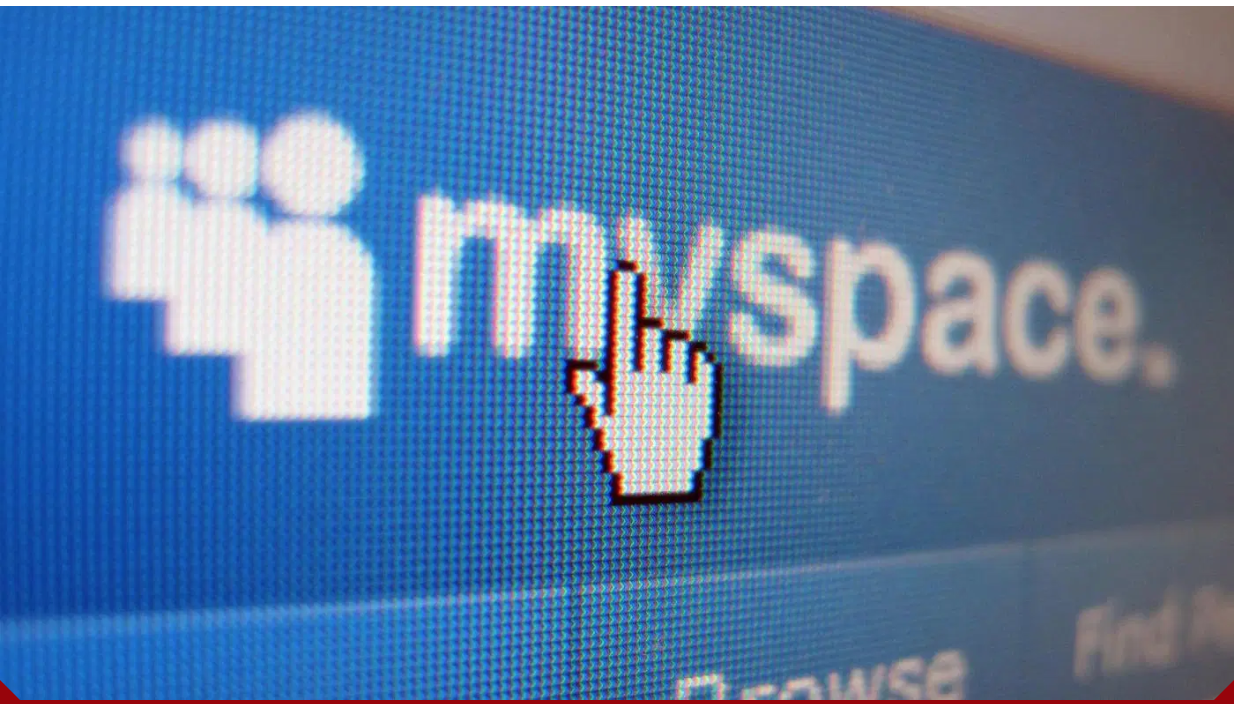
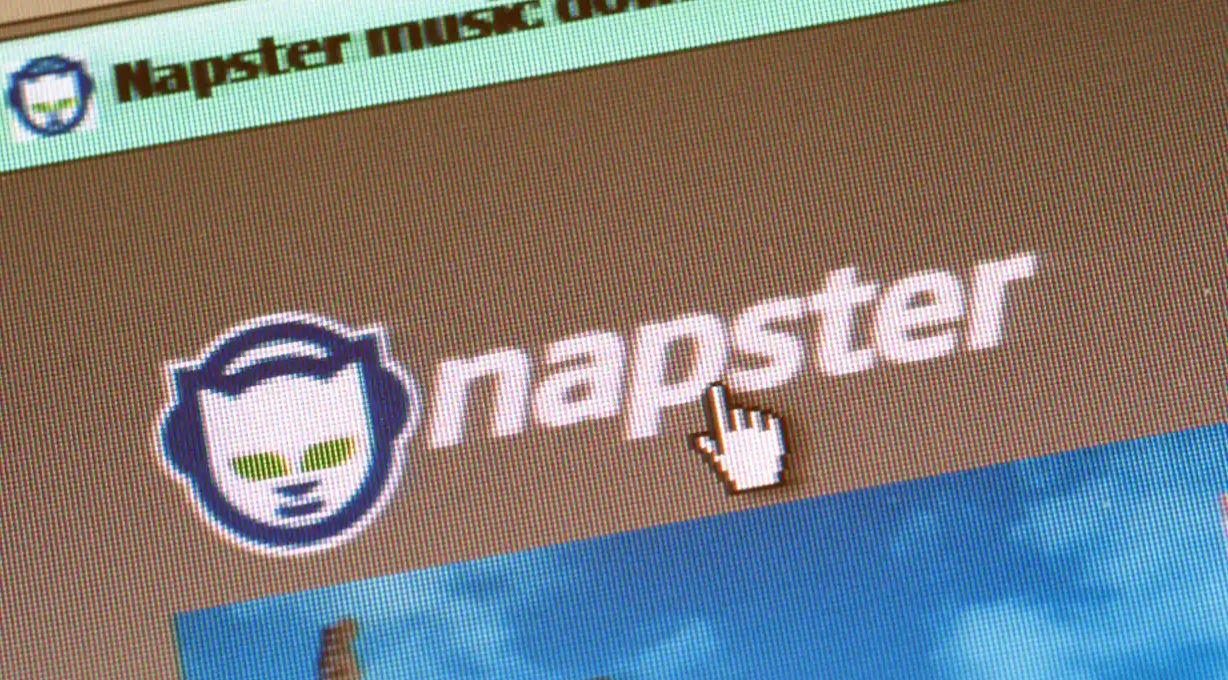
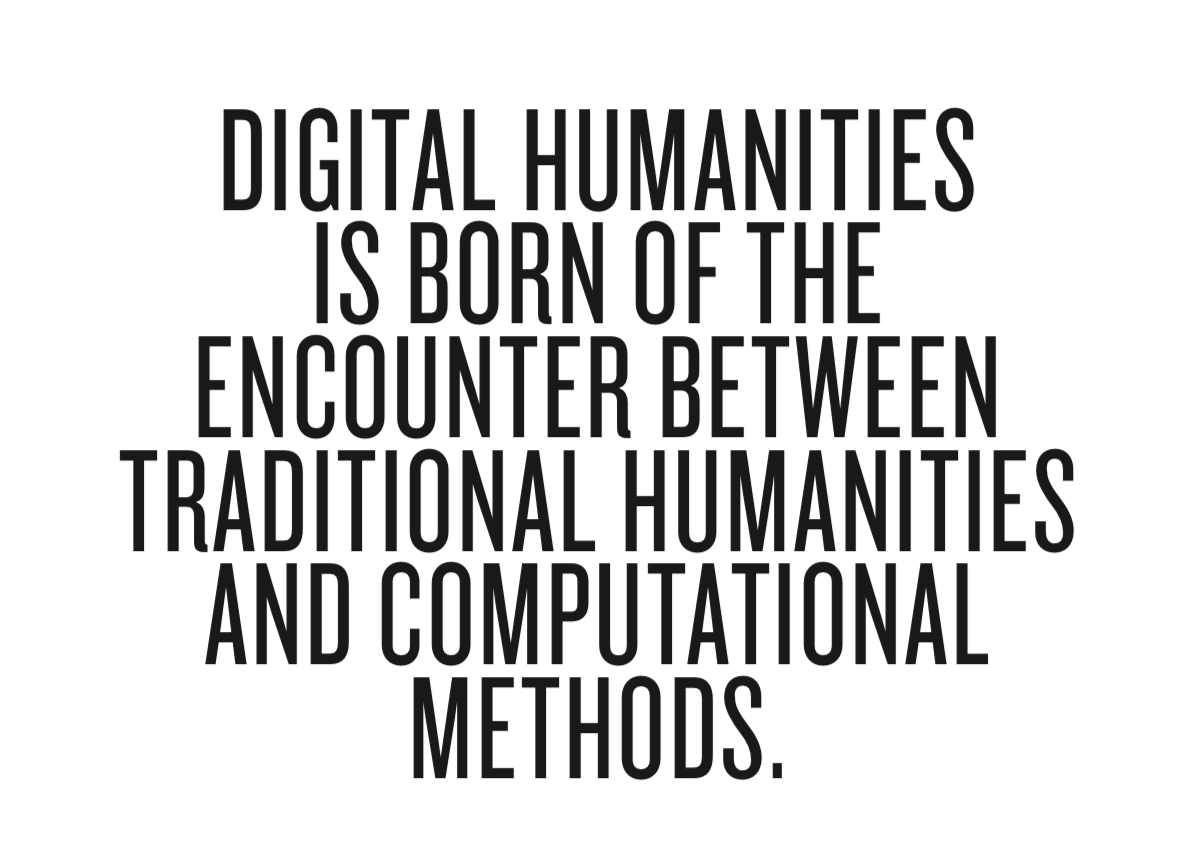
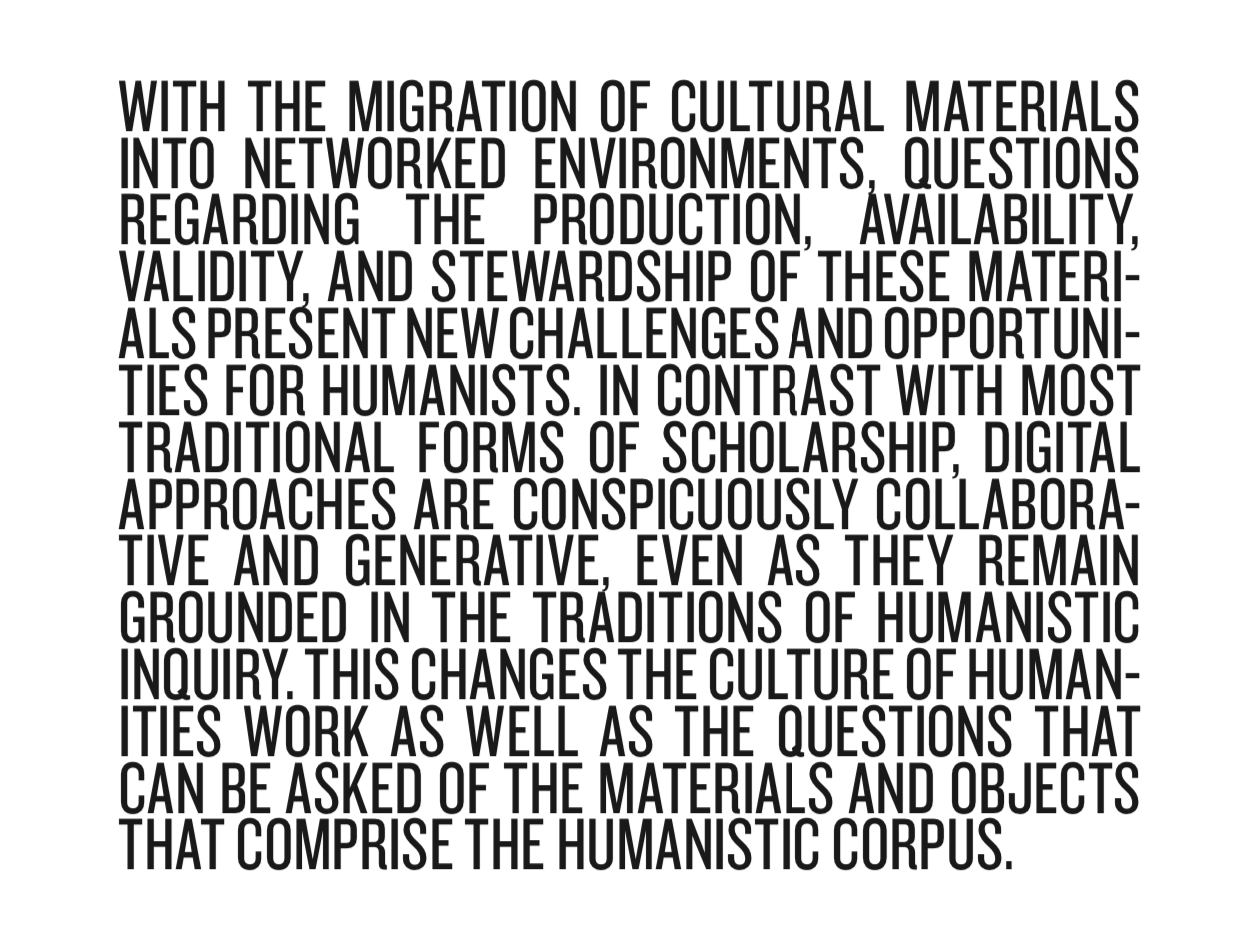
What do Digital Humanists make?
Brennan: "approach to researching and interpreting the past that relies on computer and communication technologies to help gather, quantify, interpret, and share historical materials and narratives."
-
Digital Collections
-
Teaching and Learning
-
Digital Exhibits and Publications
-
Collaborative Digital Public History
-
Computational Analysis
What do Digital Humanists Value?
Open source/Open access
Collaboration
New scales of analysis/publication
Open source = code freely available
Open access = content freely available
DH teams are often interdisciplinary and interinstitutional: scholars, web developers, librarians, students, the public
Use computational methods to analzye sources in new ways
Use web publishing tools to reach larger audiences
